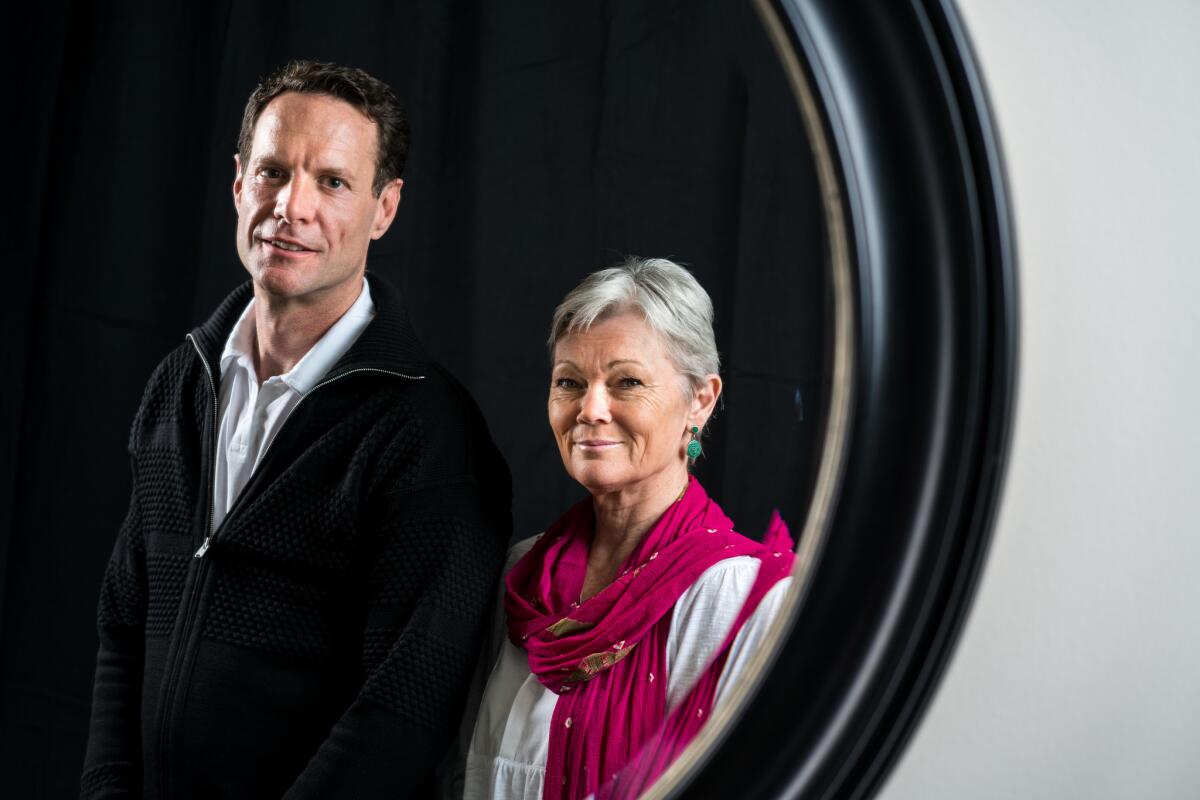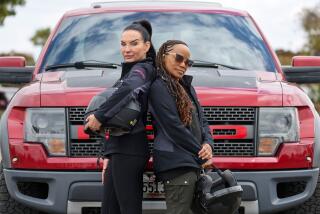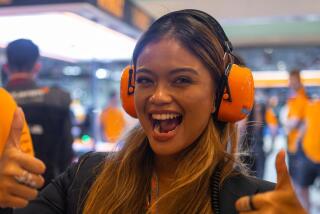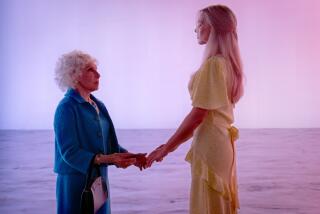The captain of the Maiden talks about how her all-female yachting crew made history

Thirty years ago, Tracy Edwards and her female crew made history when they entered the male-dominated world of the Whitbread Round the World yacht race with their boat, the Maiden.
The captain and her crew were given the cold shoulder by the other participants. Nobody thought they would finish the first leg of the 32,000-mile race, let alone complete the grueling competition. But they won two legs of the contest — and the admiration of the world — with their accomplishment, which inspired other young women to follow their dream.
Edwards, now 56, was the first woman to receive the Yachtsman of the Year Award by the Yachting Journalists’ Association, in 1990, and was made a Member of the Order of the British Empire.
And now Edwards is front and center in the recently opened documentary “Maiden.” Directed by Alex Holmes, the documentary features contemporary interviews with Edwards and her crew — along with some of their male competitors — mixed with archival footage from the race and home movies of her early life in Pangbourne, England.
Edwards lived in a home with an abusive alcoholic stepfather and was openly rebellious as a teenager. She dropped out of school at 16 and worked as a cook and stewardess on ships at island resorts. Through sheer determination, she landed a job as a cook in 1985 on the Atlantic Privateer, one of the yachts in that year’s Whitbread Race.
Tired of the sexism she encountered on that yacht, Edwards decided to get together a crew and obtain a boat. When she couldn’t get a sponsor from England, King Hussein I of Jordan came forward and, through Royal Jordanian Airlines, sponsored her in the 1989 race.
Edwards continued in competitive sailing until 2005; now she’s a motivational speaker focusing on empowering young women.
During a recent visit to Los Angeles, Edwards and Holmes talked about the voyage of the Maiden and the movie.
Are there are a lot of female crews racing boats in England since your success with the Maiden 30 years ago.
Tracy Edwards: There have been other all-female crews, but unfortunately, they were put together by men who happened to have a spare boat. So, it’s like, ‘Here girls, do you want this spare boat with a bit of money and a secondhand kit and then you can race around the world?’ None of the all-female crews have ever done as well as we did.
Alex, you were inspired to make “Maiden” after you heard Tracy speak to your 11-year-old daughter’s class in 2014.
Alex Holmes: The reason I felt I had to make the film was because I was listening to Tracy tell the story and realizing that although Tracy was talking about all the obstacles she had to overcome, many of those barriers would still be in place for my daughter to dismantle. It just struck me that there’s a superficial sense of moving forward, but actually we never really made progress. We never really embraced the idea that there can be an equality of opportunity.
You originally had envisioned “Maiden” as a narrative feature.
AH: I had no expectations that there would be footage of this, so, of course, I imagined it unfolding as a narrative feature. This was before the era of the iPhone. It was only when Tracy said, we did have cameras on board, that the possibility [for a documentary] presented itself.
TE: The Royal Naval Sailing Association, which was our race committee, had this quite revolutionary idea to film stuff. It was all very exciting. All the other boats were going “No, no no — we’re too busy racing; we’re too serious to take cameras on board.”
We said, “We’ll take them.” We did feel that we wanted to, whatever happened, capture this for posterity. I think we were probably the only boat with two cameras because Jo, as the cook, said, “I am not doing the watch, so I’ll do the filming.” And we put a camera on the mast as well. If you heard “All hands on deck,” the job of the last person out was to hit the panic button and that would start the filming. So that’s how we got footage in extreme conditions.
Joanna Gooding, who was the cook and cameraperson, really captured the thrill, the grind and the danger you and crew went through during the voyage.
AH: Jo had this knack of just letting the camera linger and just watching people. She did this sort of portraiture, and she has this emotional intelligence, this sensitivity that meant you could really get a sense of what people on the boat were feeling and experiencing.
Some of the vintage footage in the film shows the male sailors dissing the crew of the Maiden, predicting they wouldn’t even make it through the first leg of the race. And we see them today discussing their behavior and how they feel today about Tracy and her crew’s accomplishment.
TE: They did tell the truth.
AH: The great thing with the way we were interviewing people is that we didn’t have to hurry. Eventually people stopped bothering to make things up. If it’s a 10-minute interview, then you can keep up a front and you can defer. If you let the interview run long enough, then people just stop being able to dissemble and they start telling you what they really think.
Tracy, I was shocked when journalist Bob Fisher called you and the Maiden crew a tin full of tarts.
TE: The greatest thing about Bob Fisher is that he was pretty much the only journalist who allowed us to change his mind. When we sailed into New Zealand in first place, he was the one who wrote in Yachts and Yachting that they are not just a tin full of tarts; they’re a tin full of smart, fast tarts — which we thought was great. That just shows the sign of the times that we didn’t go, “Will you stop using the word tarts.”
But anyway, Bob has grown, and the reason I find it so brilliant is that he allowed himself to be taken back and told the truth.
Tracy, how did you get involved in empowering girls to get their education?
TE: I probably retired from sailing, and ended up getting a real job, a 9-to-5 job, which I’d never had before. It was working with the police and child protection center, which I absolutely loved. It was amazing.
Up until then I’d been ambassadors to very big charities. I was a talking head — do something and then walk away. So I relinquished most of my charity stuff. I started to look at small charities because now I was in the country. I was invited to become patron of the Girls’ Network. They mentor girls. They get them to stay in school. I started looking at girls education and then started finding out that more than 130 million girls don’t have an education.
I ended up working with a number of girls educational charities and started learning that so much keeps girls out of education. And then Maiden made another appearance and my life went off in a different direction.
Maiden was about to be scuttled in the Seychelles. But thanks to King Hussein’s daughter, you were able to salvage her.
TE: She funded shipping it back [to England], and now Maiden’s sailing around the world again. It will be in San Francisco in August. We have an all-female crew. We have two kind of apprentices. We take young women who need miles so they can get onto the big boats and then we have two paying-guests places to raise money for charity.
More to Read
Only good movies
Get the Indie Focus newsletter, Mark Olsen's weekly guide to the world of cinema.
You may occasionally receive promotional content from the Los Angeles Times.







